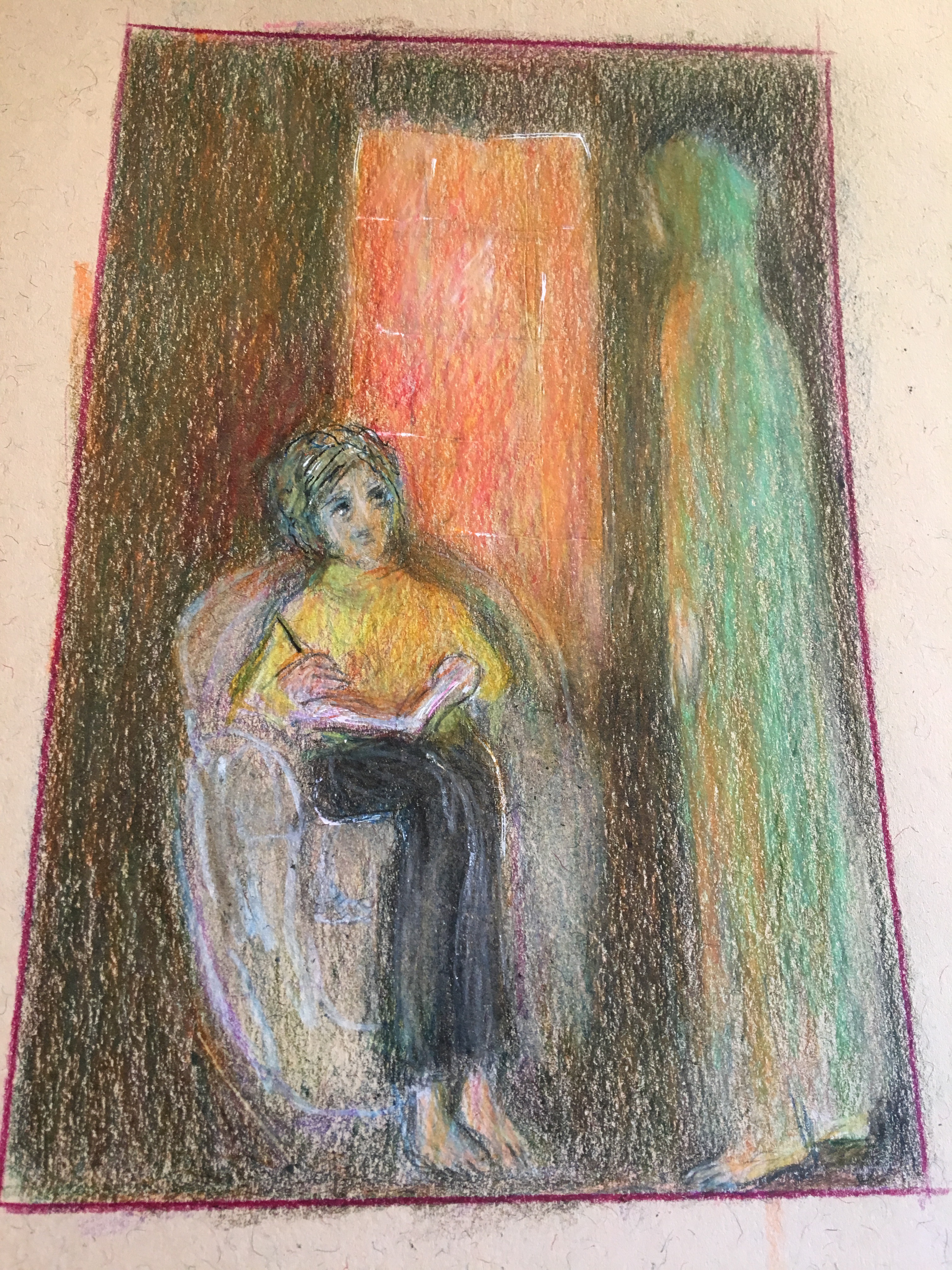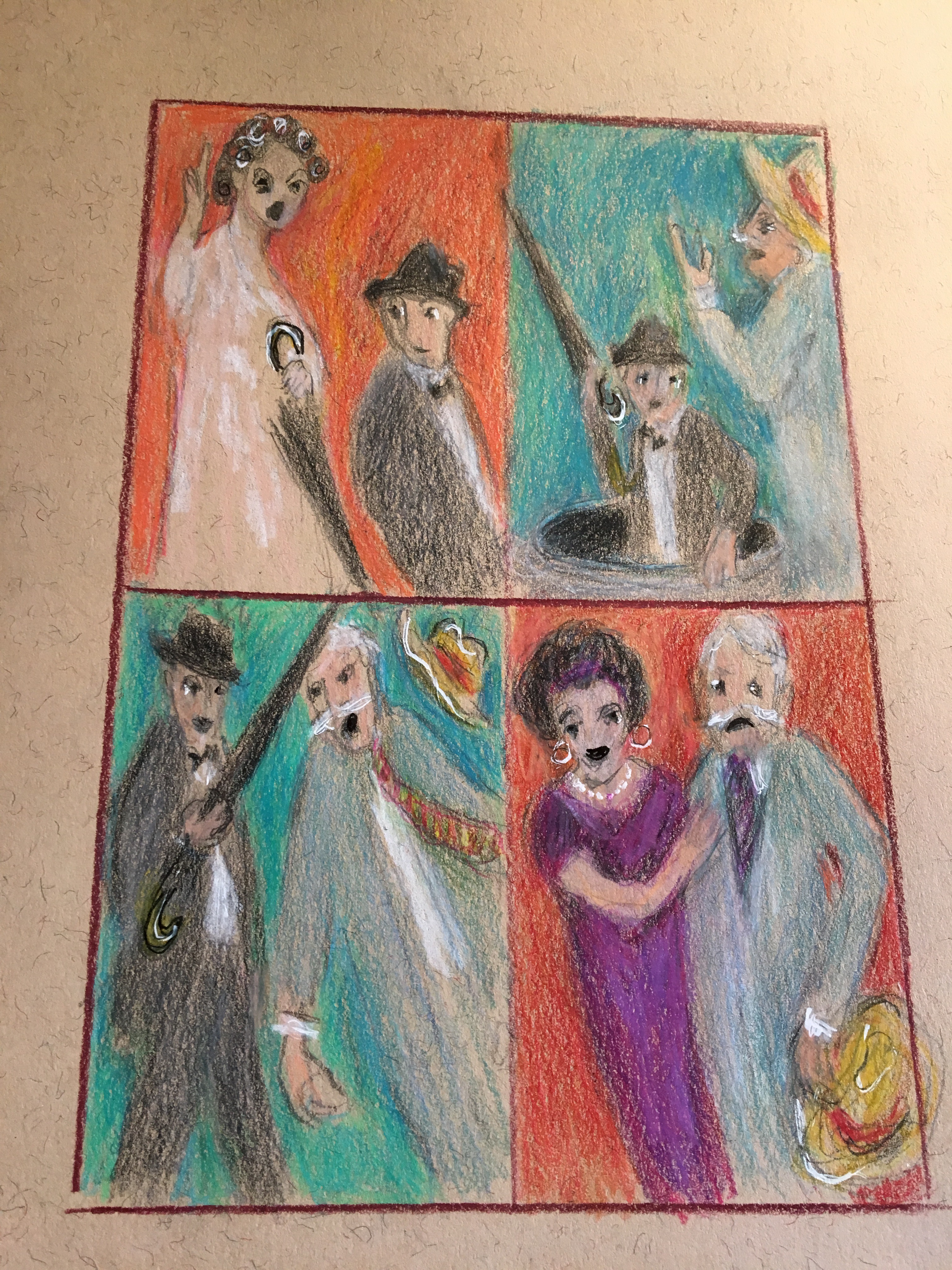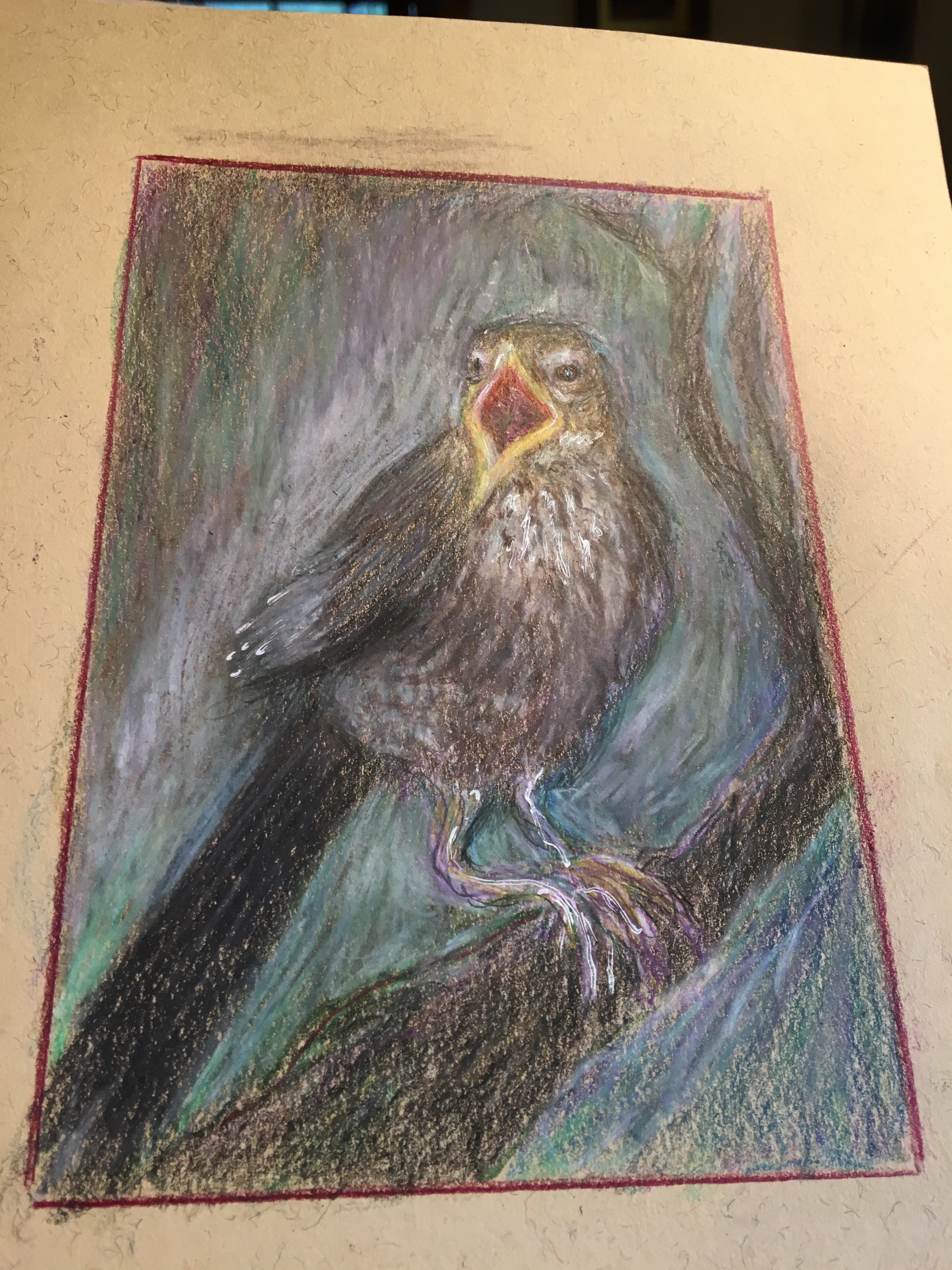A Writer’s Inescapables
Earlier in the week I was reading Rob Neufeld’s ninth chapter in the book he is writing about my work (tentatively titled The Art of Becoming), and I was struck by this sentence: “An artist has found his true subject when he dramatizes the truth he can no longer escape rather than the illusions he has longed to make true.”
In my novel A Southern Family, an Austrian theater director is saying this to an American acquaintance; he’s explaining how a certain playwright “broke through” to create his best work. This kind of thing sometimes happens. A character in my book says something I am ready to hear.
This idea sent me into a meditation. I would be sitting in my old gray corduroy chair beside the window, writing something as the late sun falls on my page. And then I look up and see a draped figure, larger than life, standing above me
HERE I AM. ARE YOU READY?
Yes, I am ready. It’s getting late. Or could it be I have already begun? My last two novels, Flora and Grief Cottage have been different from the others. Both are about children. Both are starker, come from a scarier place. I kept both of them close to me before showing them in completed form.
Or maybe there is more to come. “Is there more?” I ask the green-cloaked figure.
DO YOU WANT MORE?
“Yes, I think so.”
ARE YOU SURE?
“Yes, I think so.”
THEN STEP OVER INTO RISK WITH ME WHILE THERE IS STILL TIME.

In his “Why I Write” essay, George Orwell says that before a writer ever begins to write he “will have acquired an emotional attitude from which he will never completely escape.” But he goes on to say that “if he escapes from his earlier influences altogether, he will have killed his impulse to write.”
Can I trace an “early emotional attitude?” I decided to draw a cartoon of the first real story I wrote when I was nine. It could be represented in four scenes. Ollie McGonnigle the henpecked husband departs for work while his wife chides him for forgetting his umbrella. Ollie and his umbrella fall into an open manhole and a passing gentleman mocks, “Why don’t you warch where you are going?” Ollie climbs out of the manhole and beats the gentleman with his umbrella. Ollie comes home from work and his wife says, “We have a dinner guest, Ollie, and it’s THE MAYOR OF THE TOWN!” The guest has arrived and it’s the man Ollie attacked.
Next week, I want to write about Orwell’s Four Great Motives for Writing:
1. Sheer egotism
2. Aesthetic enthusiasm
3. Historical impulse
4.Political purpose
It is easier to spot another writer’s “emotional attitude.” Thomas Hardy’s very essence trembles in every line of “The Darkling Thrush.”
…”An aged thrush, frail, gaunt, and small/ In blast-beruffled plume,/ Has chosen thus to fling his soul/ Upon the growing gloom.”
Going through “The Darkling Thrush” again, I have resolved to memorize it for my boring treadmill sessions.

